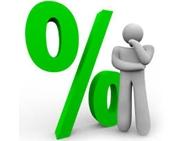Market Segment

May 2, 2015
Olympic Steel Q1 Results Admirable Despite Challenges
Written by Sandy Williams
Olympic Steel navigated through falling metal prices for a first quarter net income of $1.1 million. Income was down from $2.8 million in Q1 2014, but better than anticipated by analysts due to higher revenue of $346 million, stronger than expected gross margin (19.1 percent) and lower operating expenses.
In the carbon flat products segment, volume decreased 2.4 percent to 275,000 tons year over year. Selling prices were down 2.4 percent from first quarter and contributed to a 4.7 percent drop in sales to $228,545,000.
Olympic’s specialty metals segment, which includes flat stainless and aluminum products, helped offset declines in carbon. Specialty metals average selling price increased 4.1 percent from Q1 and volume of 19,000 tons increased 9.6 percent. Sales from the segment represented 15 percent of consolidated sales for the quarter.
“Our strategy has been to diversify products and geographies in order to generate profitable growth regardless of the industry cycle,” said Chairman and Chief Executive Officer Michael D. Siegal. “We responded quickly to sharp declines in metal pricing by implementing a multi-pronged profit improvement program early in 2015. As a result, operating expenses were reduced by $2.6 million in the quarter and we further strengthened our balance sheet by reducing inventory and debt.”
During the company earnings call, Siegel commented on the imports and the impact of a strong U.S. dollar.
“The U.S. dollar while softening off late rose by 23% against the Euro, hurting our customers’ ability to export their products and making them more vulnerable to imports of their products. In addition we are seeing the record imports of raw steel products in the first quarter of this year after a year of record imports in all of 2014 and in the fourth quarter. This material is in the marketplace now and continues to put pressure on pricing and margins.
“We are also encouraged by the recent articles that we’ve read of the possible trade actions, price increase announcements and perhaps as we said, the beginning of the lowering of the U.S. dollar versus other currency and hope that these various issues will create some stability in the global metals pricing.
Olympic Steel primarily relies on domestic steel with about only 7-10 percent, mostly specialty items, imported. President and COO David Wolfort said available low import prices did not tempt Olympic customers to move other suppliers.
“Mike and I have been doing this for 40 years,” said Wolfort, “and we have a saying here that on imported products, and it comes three ways, it comes early, it comes late and it comes just in time and it all comes on the same boat.”







